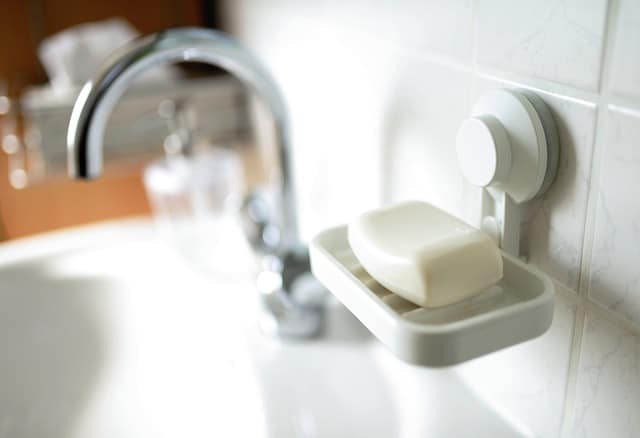California Break Laws
If your employer violates California break laws and doesn’t provide employees with meal and rest breaks they deserve, Dychter Law Offices can help.
California Break Laws: Employers Must Provide Employees With Meal and Rest Breaks
In order to improve the workplace environment and ensure safe and healthy employees, break laws in California require employers to provide employees with meal breaks and rest breaks based on the number of total hours worked by each employee.
Unfortunately, employers regularly ignore these regulations and either deny their employees the right to meal and rest breaks or fail to adequately compensate them for their time. Under California law, breaks for meals and rest are mandatory.
What Does Federal Law Say on Meal and Rest Breaks?
Federal law (codified in the Fair Labor Standards Act) doesn’t require a meal or rest period. But, if an employer offers employees breaks shorter than 20 minutes, the federal law considers these breaks as a part of time worked during the work-week.
However, employers in California must provide employees with regular meals and rest breaks by the law of this state.
We regularly represent clients who’ve been denied their appropriate meal and rest breaks or who haven’t been appropriately compensated for their time at work. You are entitled to different breaks, and your employer must provide you with:
- Meal Breaks
- Rest Breaks
If you’ve been denied a rest break or a meal break, or your employer refused to compensate you properly for your break time, reach out to us. Dychter Law Offices serves employees who have been mistreated and taken advantage of by their employers and companies. From individual employment law claims to complex nation-wide class actions, our law firm is committed to providing thoughtful, personalized legal representation.
We Can Help
Practice Areas
Rest Breaks California: 10-Minute Rest Break After 4 Hours Worked
Under the California Labor Code, employers are required to allow employees to take rest breaks or rest periods throughout the workday. At a bare minimum, you are entitled to a 10-minute rest period for every 4 hours or major fraction you work. This rest break should generally be taken toward the middle of the total work period per day, and your employer should not interrupt it.
If you work more than 6 hours and less than 8 hours, you are also entitled to a second 10-minute rest break in the middle of that work period. If you work more than 10 hours, you can also have a third rest break. However, a rest break is not required if an employee works less than a 3.5-hour shift.
These rest breaks are actually paid time that you are entitled to. Your employer may require that you stay at the worksite during the rest break, but they cannot deny you the rest break or deduct the time for these breaks from your wages. In some situations, your employer may stagger individual rest periods so that the business is not interrupted. This is legal as long as there is a reasonable justification for staggering the breaks, and you are not denied your rest period.

At Dychter Law Offices, we offer free, no-obligation consultations for clients who’ve been wrongfully denied their rest breaks or not paid for them, and we would be happy to discuss your case.
If you have been denied lawful breaks or you are dealing with other workplace issues such as being wrongfully terminated, you may be able to bring a lawsuit to enforce your rights and obtain compensation from your employer with the help of an employment lawyer in San Diego.
California Labor Laws and Breaks: Do Bathroom Breaks Count?
We regularly hear from potential clients that their employers had told them that they could not take bathroom breaks outside of the 10-minute rest breaks they are entitled to by law. Under California laws on breaks, employees are entitled to take a break to use the bathroom whenever they need to, as long as they are doing so in a reasonable manner. That means that if you drink coffee on the way to work and need to use the restroom an hour after you arrive, your employer cannot deny you that right and cannot dock that time against your 10-minute rest break.
Your employer also cannot make rules about how frequently you can use the restroom. Each person is different, and individual bathroom needs are well documented and supported by law. So if you need to go more frequently, your employer cannot discriminate or punish you for that.
Understanding California’s Meal Break Laws
General Requirements for Meal Breaks
California law requires employers to provide non-exempt employees with uninterrupted meal breaks when they work more than five hours in a shift. Here are the key provisions regarding meal breaks:
-
First Meal Break: Employees who work more than five hours are entitled to a 30-minute meal break. This break must be provided before the end of the fifth hour of work.
-
Second Meal Break: If an employee works more than 10 hours in a shift, they are entitled to a second 30-minute meal break. This second meal break must be provided before the end of the tenth hour of work.
-
Uninterrupted Break: The meal break must be uninterrupted, meaning the employee must be completely free from all work duties during the 30-minute period.
-
Off-Duty Requirement: During the meal break, employees must be allowed to leave the work premises if they choose. Employers cannot require employees to remain on-site or perform any work-related tasks during their meal period.
On-Duty Meal Breaks
In certain exceptional circumstances, employers may require an employee to take an on-duty meal break, meaning the employee must remain available to work during the meal period. This is allowed only if the nature of the work prevents the employee from being relieved of all duties. On-duty meal breaks must be:
- Agreed to in writing by the employee.
- Paid as work time.
- Subject to revocation by the employee at any time.
On-duty meal breaks are rare and typically only occur in industries where uninterrupted work is critical, such as security services or some healthcare roles.
Penalties for Missed Meal Breaks
Employers are required to compensate employees for missed meal breaks. If an employee is not provided a meal breakor is interrupted during their meal break, the employer must pay the employee one additional hour of pay at the employee’s regular rate of compensation for each missed or non-compliant meal break. This is known as premium payand is outlined under the Labor Code Section 226.7.
For instance, if an employee works eight hours and the employer fails to provide the legally required 30-minute meal break, the employer must pay the employee an additional hour of wages.

Knowing your rights is the first step to protecting them. If your employer has denied you your rest periods, has tried to force you to use the bathroom only during your 10-minute rest breaks, or discriminated because you need to use the restroom frequently due to a medical condition, you may be entitled to compensation.
With extensive employment law experience representing individuals in San Diego against employers of all sizes, our lawyers at Dychter Law Offices can help you understand your rights. We handle all San Diego employment law cases on a contingency fee basis. That means you don’t have to pay for the services until we win your case or a favorable settlement is obtained.
California Labor Code States that Lunch Breaks Must Last at Least 30 Minutes
In California, if you work over 5 hours on a workday, your employer is required by law to provide you with the opportunity to take at least a 30-minute meal break. You cannot employ someone to work for five hours or more without providing a meal period. The first meal period has to be provided within the first 5 hours of the time you’ve worked.
You and your employer may choose to skip the 30-minute meal break if you work less than 6 hours in a workday. However, it’s important that the meal period is waived by mutual consent. You cannot waive the break if you work more than 6 hours, and your employer cannot require you to skip the break if you want or need to take it.
If you work more than 10 hours a day, you are entitled to a second meal break of not less than 30 minutes. If the total work hours are no more than 12 hours, the second meal period may also be waived by mutual consent of the employer and the employee, but only if the first meal period was not waived.

Which Employees Are Entitled to a Meal Break?
Under California labor laws, non-exempt employees have a right to a meal break. Also, some exempt employees are also entitled to a meal break and a rest break. However, the meal and rest break law doesn’t generally apply to employees who qualify as independent contractors.
In California, meal periods are typically unpaid. That is why some employees and employers agree to waive the California meal break when someone works a short hour shift or less than six hours.
However, in order for a meal break to be unpaid, the employee must be relieved of all of his/her duties to the business. This means that if an employee is asked to do anything for the employer during the meal period, that must be a paid meal period. Also, if the nature of the work prevents an employee from taking a break from work duties, employers may provide an on-duty meal period. In addition, an employee must agree to an on-duty meal period.
Although workers in California are protected by a long list of employees’ rights, laws, and regulations, many are not aware of them. However, employers often ignore these regulations and deny employees their rights, which can also result in unpaid wages. If you think your employee rights have been violated or your employer has broken California laws for breaks, talk to a local attorney experienced with the San Diego employment law.
You Can Sue If Your Employer Violates Lunch Break Laws California
If your employer requires you to remain at the worksite or work facility during your meal period, you must be paid for your break, even if you aren’t “on duty.” Meal periods are supposed to be free time for you as an employee to do whatever you want, and requiring you to remain at work during unpaid time is illegal.
The exact time when you take your meal break, and when you return from your meal break must be recorded. This means that employees must record their 30-minute meal break times in a time-keeping system in order to make sure the law is being followed.
If your employer has denied your meal breaks, asked you to work during an unpaid meal period or required that you stay at work during your break, you may be entitled to bring an action against your employer to compensate you for your time and force him or her to comply with the law. Contact us today to discuss your rights and how we can hold your employer accountable.



